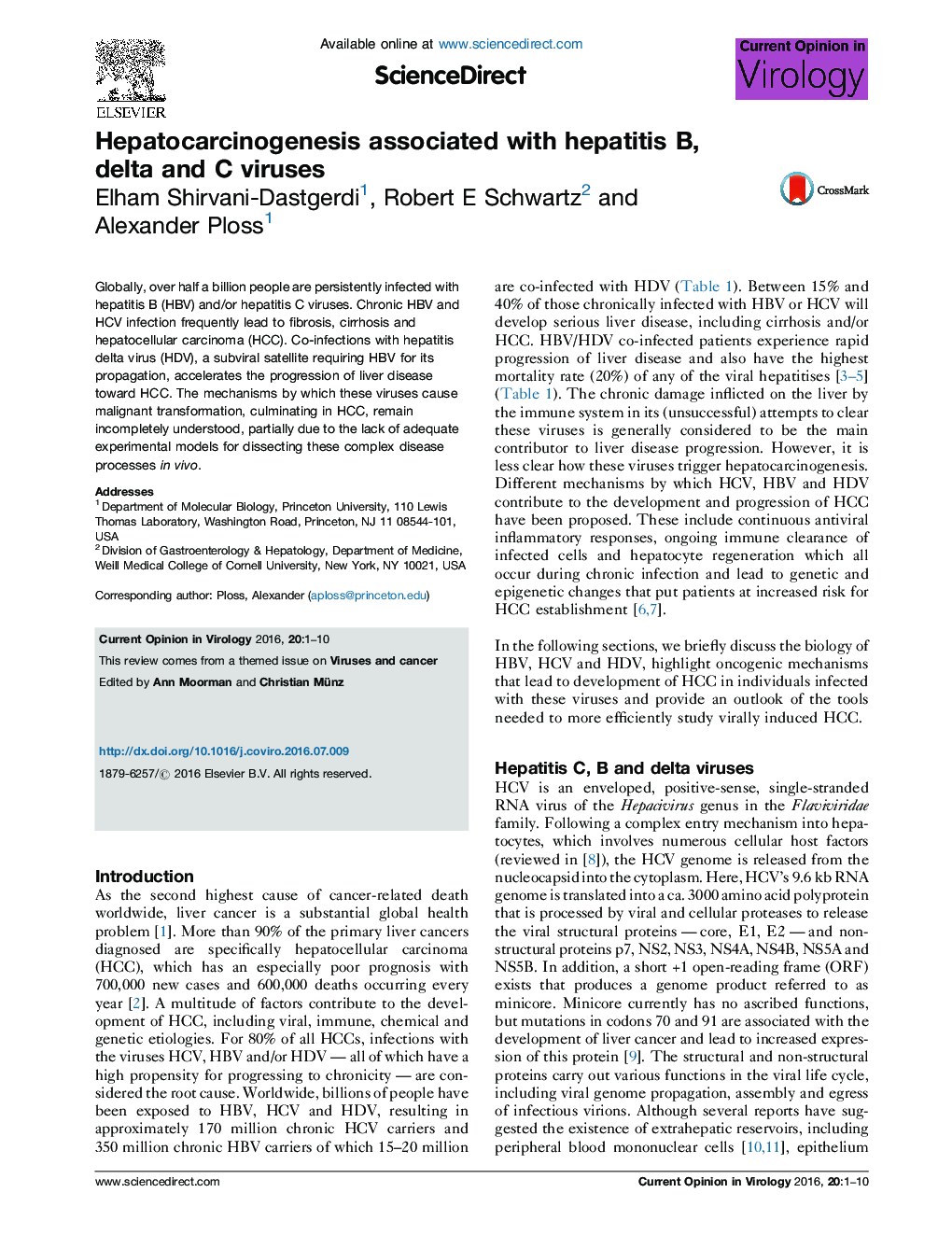| Article ID | Journal | Published Year | Pages | File Type |
|---|---|---|---|---|
| 2473157 | Current Opinion in Virology | 2016 | 10 Pages |
•Hepatocellular carcinoma is one of the most prevalent and lethal forms of cancer.•Infections with hepatitis B, C and delta viruses are main causes for HCC.•Chronic liver inflammation and dysregulation of signaling pathways lead to malignant transformation.•Better animal models are needed to study virally induced hepatocarcinogenesis.
Globally, over half a billion people are persistently infected with hepatitis B (HBV) and/or hepatitis C viruses. Chronic HBV and HCV infection frequently lead to fibrosis, cirrhosis and hepatocellular carcinoma (HCC). Co-infections with hepatitis delta virus (HDV), a subviral satellite requiring HBV for its propagation, accelerates the progression of liver disease toward HCC. The mechanisms by which these viruses cause malignant transformation, culminating in HCC, remain incompletely understood, partially due to the lack of adequate experimental models for dissecting these complex disease processes in vivo.
